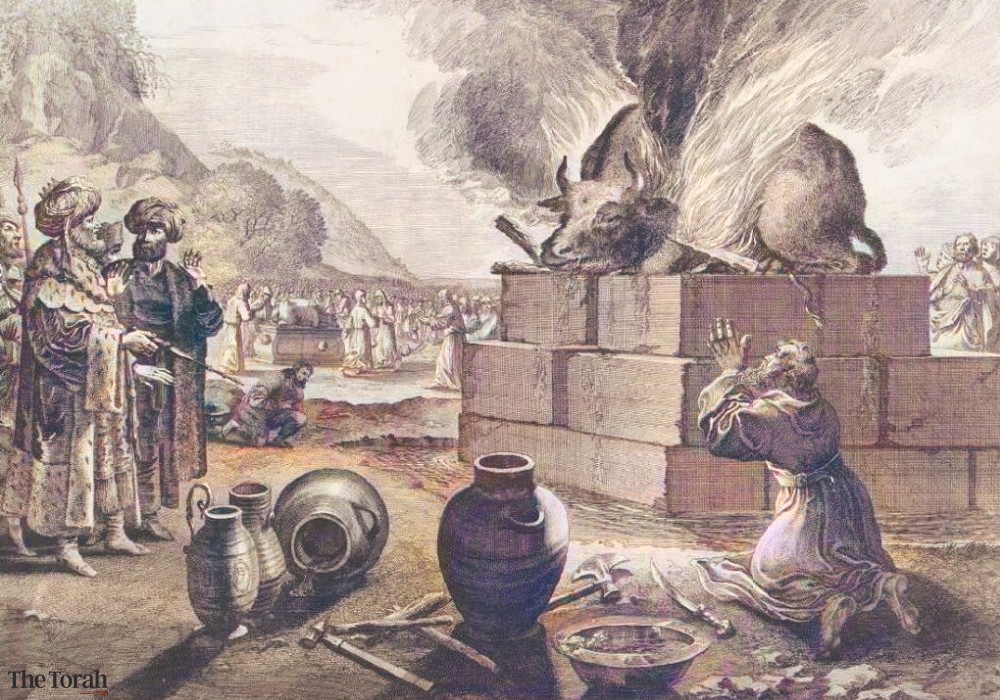This week we are reading about the Contest on Mount Carmel between Elijah and the 450 prophets of Baal. Please read and re-read 1 Kings 18. As you read through the story think about how this story is relevant today and in your spiritual journey.
The Literal:
The literal/historical reading of this story should cause us great concern. Here we have a devout follower of God, who in his zeal for God and thirst for revenge, murders those who worship a different god. This is what we saw on 9/11. This is what Jesus speaks out directly against in the Sermon on the Mount and particularly in Matthew 5:38-48 where Jesus tells us that to be perfect we must forgo retaliation and pray for those who persecute us. Elijah presents us with a conundrum.
In the time of Jesus, there was a Jewish group called the Zealots. The Zealots longed for a pure Judea and Jerusalem freed from Roman occupation. They carried out terrorist acts intending to provoke a Roman response and thereby force God’s hand to raise up a militarist Messiah. In 70 AD the Zealots finally provoked Rome, and the First Jewish-Roman War ended with the sacking of Jerusalem and the destruction of the Temple. The Zealots held up Elijah on Mount Carmel as their example to follow.
Anagogical:
From the anagogical perspective, Elijah provides us with one of the first great foreshadowings of the eschatological apocalypse. Elijah’s Contest on Mount Carmel between Yahweh and Baal gets reinterpreted and revised in Jewish apocalyptic literature as God v. Satan or Good v. Evil. In this manner, the contest on Mount Carmel gives us a glimpse into the Incarnation.
Paul tells us that the very purpose of Jesus’ incarnation, death, and resurrection was to give us victory over the evil powers of this world, including the power of death. Gal. 1:4, 1 Cor. 15:57. As Paul further writes, “Our battle is not against flesh and blood, but against the principalities, against the powers, against the world rulers of this present darkness, against the spiritual hosts of wickedness in the heavenly places.” Eph. 6:12. Jesus does not suffer God’s wrath, but, like Elijah, brings God’s wrath to bear upon the evil in this world. This is why the demons shudder. Mark 1:24, James 2:19. The contest on Mount Carmel eventually leads us to the battles in Revelation 12 and Revelation 19.
Moral:
The great relevance of this story, however, lies within his moral sense. In the opening scene at Mount Carmel, Elijah sets forth the “either/or” that confronts each of us daily: How long will you go limping with two different opinions? If the Lord is God, follow him, but if Baal, then follow him. 1 Kings 18:21. Like Elijah’s audience, we are also continually pressured into cultural accommodation and assimilation. We are surrounded by Jezebels who promote the worship of other gods into our lives.
To follow Jesus and to maintain our identity in Christ, requires an endless intentionality that Elijah puts before us. We are continuously told that we must buy into the culture of today which is focused on power, wealth, social standing, and the culture-war topic de jour. Baals exist on both the left and the right of our society and are often couched in Jesusey language.
Elijah’s question is a calling to God’s people to be that alternative community in the world. This is the issue that Tim Sorens addressed in his book. This is the community that a pregnant Mary describes in the Magnificat in Luke 1:46-55. The people first responded to Elijah with silence, but after they had witnessed the power of God they joyfully exclaimed “The Lord indeed is God.” v.39. That should be our response as well.
Dinner is at 6. The menu is savory waffles. Discussion about 6:45. Hope to see you here!
Now therefore fear the Lord, and serve him in sincerity and in faithfulness; put away the gods which your fathers served beyond the River, and in Egypt, and serve the Lord. 15 And if you be unwilling to serve the Lord, choose this day whom you will serve, whether the gods your fathers served in the region beyond the River, or the gods of the Amorites in whose land you dwell; but as for me and my house, we will serve the Lord.”
Joshua 24:14-16

